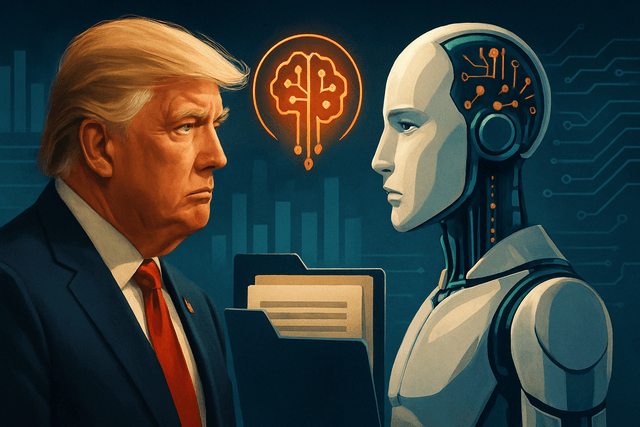President Donald Trump's administration revealed its highly anticipated AI Action Plan on July 23, outlining over 90 federal policy actions designed to solidify America's position as the global leader in artificial intelligence technology.
The plan is structured around three key pillars: accelerating innovation, building American AI infrastructure, and leading in international diplomacy and security. White House officials, including AI Czar David Sacks, emphasized that winning the global AI race is "non-negotiable" for maintaining U.S. economic and national security advantages.
A significant component of the plan involves rolling back regulatory barriers. The administration has already reversed previous export restrictions on AI chips, with Nvidia recently receiving approval to resume selling its H20 AI chips to China. This decision came after Nvidia CEO Jensen Huang met with President Trump, with the company estimating it had lost billions in potential revenue during the restriction period.
The plan also recommends that large language models procured by the federal government be "objective and free from top-down ideological bias," reflecting the administration's concerns about perceived political leanings in AI systems. Additionally, it calls for expediting permits for data centers and semiconductor fabrication plants while upgrading the nation's power grid to support AI infrastructure.
However, the initiative has drawn criticism from various stakeholders. A coalition including the Electronic Privacy Information Center, the Writers Guild of America East, and the AI Now Institute has called for an alternative "People's Action Plan" that would prioritize AI safety over industry interests. These groups argue the administration's approach favors tech companies at the expense of addressing concerns about job displacement, privacy, and algorithmic harm.
White House officials maintain that all policies outlined in the plan can be executed within the next 6-12 months, signaling a rapid implementation timeline that aligns with the administration's broader tech strategy of reducing regulatory barriers while promoting American technological leadership.

